Airegin by Sonny Rollins – Jazz Play Along, sheet music download
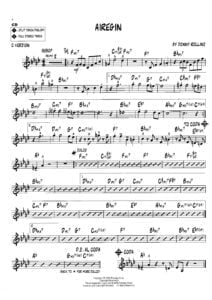
Sonny Rollins BIO (from the official web page)
WALTER THEODORE ROLLINS was born on September 7, 1930 in New York City. He grew up in Harlem not far from the Savoy Ballroom, the Apollo Theatre, and the doorstep of his idol, Coleman Hawkins. After early discovery of Fats Waller and Louis Armstrong, he started out on alto saxophone, inspired by Louis Jordan. At the age of sixteen, he switched to tenor, trying to emulate Hawkins. He also fell under the spell of the musical revolution that surrounded him, bebop.
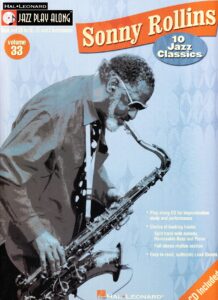
He began to follow Charlie Parker, and soon came under the wing of Thelonious Monk, who became his musical mentor and guru. When he was living in Sugar Hill, his neighborhood musical peers included Jackie McLean, Kenny Drew, and Art Taylor, but it was young Sonny who was first out of the pack, working and recording with Babs Gonzales, J.J. Johnson, Bud Powell, and Miles Davis before he turned twenty.
“Of course, these people are there to be called on because I think I represent them in a way,” Rollins has said of his peers and mentors. “They’re not here now so I feel like I’m sort of representing all of them, all of the guys. Remember, I’m one of the last guys left, as I’m constantly being told, so I feel a holy obligation sometimes to evoke these people.”
In the early fifties, he established a reputation first among musicians, then the public, as the most brash and creative young tenor on the scene, through his work with Miles, Monk, and the MJQ.
Miles Davis was an early Sonny Rollins fan and in his autobiography wrote that he “began to hang out with Sonny Rollins and his Sugar Hill Harlem crowd… anyway, Sonny had a big reputation among a lot of the younger musicians in Harlem. People loved Sonny Rollins up in Harlem and everywhere else.
He was a legend, almost a god, to a lot of the younger musicians. Some thought he was playing the saxophone on the level of Bird. I know one thing–he was close. He was an aggressive, innovative player who always had fresh musical ideas. I loved him back then as a player, and he could also write his ass off…”
Sonny moved to Chicago for a few years to remove himself from elements of negativity around the jazz scene. He reemerged at the end of 1955 as a member of the Clifford Brown-Max Roach Quintet, with an even more authoritative presence. His trademarks became a caustic, often humorous style of melodic invention, a command of everything from the most arcane ballads to calypsos, and an overriding logic in his playing that found him hailed as models of thematic improvisation.
It was during this time that Sonny acquired a nickname, “Newk.” As Miles Davis explains in his autobiography: “Sonny had just got back from playing a gig out in Chicago. He knew Bird, and Bird really liked Sonny, or ‘Newk’ as we called him, because he looked like the Brooklyn Dodgers’ pitcher Don Newcombe.
One day, Sonny and I were in a cab… when the white cabdriver turned around and looked at Sonny and said, ‘Damn, you’re Don Newcombe!’ Man, the guy was totally excited. I was amazed, because I hadn’t thought about it before. We just put that cabdriver on something terrible. Sonny started talking about what kind of pitches he was going to throw Stan Musial, the great hitter for the St. Louis Cardinals, that evening…”
In 1956, Sonny began recording the first of a series of landmark recordings issued under his own name: “Valse Hot” introduced the practice, now common, of playing bop in 3/4 meter; “St. Thomas” initiated his explorations of calypso patterns; and “Blue 7” was hailed by Gunther Schuller as demonstrating a new manner of “thematic improvisation,” in which the soloist develops motifs extracted from his theme.
Way Out West (1957), Rollins’s first album using a trio of saxophone, double bass, and drums, offered a solution to his longstanding difficulties with incompatible pianists, and exemplified his witty ability to improvise on hackneyed material (“Wagon Wheels,” “I’m an Old Cowhand”).
“It Could Happen to You” (also 1957) was the first in a long series of unaccompanied solo recordings, and The Freedom Suite (1958) foreshadowed the political stances taken in jazz in the 1960s. During the years 1956 to 1958 Rollins was widely regarded as the most talented and innovative tenor saxophonist in jazz.
Rollins’s first examples of the unaccompanied solo playing that would become a specialty also appeared in this period; yet the perpetually dissatisfied saxophonist questioned the acclaim his music was attracting, and between 1959 and late ‘61 withdrew from public performance.
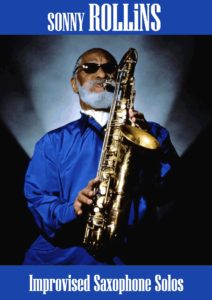
Sonny remembers that he took his leave of absence from the scene because “I was getting very famous at the time and I felt I needed to brush up on various aspects of my craft. I felt I was getting too much, too soon, so I said, wait a minute, I’m going to do it my way. I wasn’t going to let people push me out there, so I could fall down. I wanted to get myself together, on my own. I used to practice on the Bridge, the Williamsburg Bridge because I was living on the Lower East Side at the time.”
When he returned to action in late ‘61, his first recording was appropriately titled The Bridge. By the mid 60s, his live sets became grand, marathon stream-of-consciousness solos where he would call forth melodies from his encyclopedic knowledge of popular songs, including startling segues and sometimes barely visiting one theme before surging into dazzling variations upon the next. Rollins was brilliant, yet restless.
The period between 1962 and ‘66 saw him returning to action and striking productive relationships with Jim Hall, Don Cherry, Paul Bley, and his idol Hawkins, yet he grew dissatisfied with the music business once again and started yet another sabbatical in ‘66.
“I was getting into Eastern religions,” he remembers. “I’ve always been my own man. I’ve always done, tried to do, what I wanted to do for myself. So these are things I wanted to do. I wanted to go on the Bridge. I wanted to get into religion. But also, the jazz music business is always bad. It’s never good. So that led me to stop playing in public for a while, again.
During the second sabbatical, I worked in Japan a little, and went to India after that and spent a lot of time in a monastery. I resurfaced in the early 70s, and made my first record in ‘72. I took some time off to get myself together, and I think it’s a good thing for anybody to do.”
In 1972, with the encouragement and support of his wife Lucille, who had become his business manager, Rollins returned to performing and recording, signing with Milestone and releasing Next Album. (Working at first with Orrin Keepnews, Sonny was by the early 80s producing his own Milestone sessions with Lucille.)
His lengthy association with the Berkeley-based label produced two dozen albums in various settings—from his working groups to all-star ensembles (Tommy Flanagan, Jack DeJohnette, Stanley Clarke, Tony Williams); from a solo recital to tour recordings with the Milestone Jazzstars (Ron Carter, McCoy Tyner); in the studio and on the concert stage (Montreux, San Francisco, New York, Boston).
Sonny was also the subject of a mid 80s documentary by Robert Mugge entitled Saxophone Colossus; part of its soundtrack is available as Sonny Rollins Plays G-Man.
He won his first performance Grammy for This Is What I Do (2000), and his second for 2004’s Without a Song (The 9/11 Concert), in the Best Jazz Instrumental Solo category (for “Why Was I Born”). In addition, Sonny received a Lifetime Achievement Award from the National Academy of Recording Arts and Sciences in 2004.
In June 2006, Rollins was inducted into the Academy of Achievement—and gave a solo performance—at the International Achievement Summit in Los Angeles. The event was hosted by George Lucas and Steven Spielberg and attended by world leaders as well as distinguished figures in the arts and sciences.
Rollins was awarded the Austrian Cross of Honor for Science and Art, First Class, in November 2009. The award is one of Austria’s highest honors, given to leading international figures for distinguished achievements. The only other American artists who have received this recognition are Frank Sinatra and Jessye Norman.
In 2010 on the eve of his 80th birthday, Sonny Rollins became one of 229 leaders in the sciences, social sciences, humanities, arts, business, and public affairs who have been elected members of the American Academy of Arts and Sciences. A center for independent policy research, the Academy is among the nation’s oldest and most prestigious honorary societies and celebrates the 241st anniversary of its founding this year.
In August 2010, Rollins was named the Edward MacDowell Medalist, the first jazz composer to be so honored. The Medal has been awarded annually since 1960 to an individual who has made an outstanding contribution to his or her field.
Yet another major award was bestowed on Rollins on March 2, 2011, when he received the Medal of Arts from President Barack Obama in a White House ceremony. Rollins accepted the award, the nation’s highest honor for artistic excellence, “on behalf of the gods of our music.”
Since 2006, Rollins has been releasing his music on his own label, Doxy Records. The first Doxy album was Sonny, Please, Rollins’s first studio recording since This Is What I Do. That was followed by the acclaimed Road Shows, vol. 1 (2008), the first in a planned series of recordings from Rollins’s audio archives.
Rollins released Road Shows, vol. 2 in the fall of 2011. In addition to material recorded in Sapporo and Tokyo, Japan during an October 2010 tour, the recording contains several tracks from Sonny’s September 2010 80th birthday concert in New York—including the historic and electrifying encounter with Ornette Coleman.
On December 3, 2011 Sonny Rollins was one of five 2011 Kennedy Center honorees, alongside actress Meryl Streep, singer Barbara Cook, singer/songwriter Neil Diamond, and cellist Yo-Yo Ma. Rollins said of the honor, “I am deeply appreciative of this great honor. In honoring me, the Kennedy Center honors jazz, America’s classical music. For that, I am very grateful.”
Road Shows, vol. 3, released by Doxy/OKeh/Sony in 2014, drew its six tracks from concerts recorded between 2001 and 2012 in Sitama, Japan; Toulouse, Marseille, and Marciac, France; and St. Louis, Missouri. “Patanjali,” a recent-vintage Rollins composition, was given its debut recording on the disc.
Rollins followed this up in 2016 with Holding the Stage: Road Shows, vol. 4 (Doxy/OKeh/Sony). The album’s seven tracks encompass some 33 years (1979-2012) and include a previously unreleased 23-minute medley (and concert closer) from his September 15, 2001 Boston performance, most of which had been immortalized in Rollins’s final Milestone album, Without a Song: The 9/11 Concert.
In 2017, the Schomburg Center in New York City acquired Rollins’s personal archive.
In late 2020, the saxophonist released Rollins in Holland, a 2-CD/3-LP deluxe set via Resonance Records. The collection of unheard live and studio trio recordings from Rollins’s 1967 Netherlands tour feature “take no prisoners” performances with bassist Ruud Jacobs and drummer Han Bennink.
Airegin (Jazz Standard)
“Airegin,” an up tempo minor composition, was inspired by a magazine photograph of Nigerian dancers that had impressed Rollins, who said, “So the next song that I wrote I dedicated to the dancers, and I titled it ‘Airegin,’ which is Nigeria spelled backwards.”
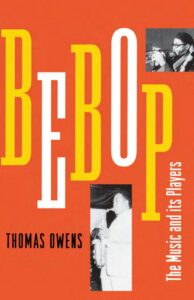
Jon Hendricks wrote a lyric for “Airegin” which was performed by the vocal group Lambert, Hendricks & Ross in 1959 and recorded in 1985 by the Manhattan Transfer with Hendricks scatting Rollins’ solo for the Transfer’s award-winning Vocalese album. The complex lyric paints a picture of Nigeria’s history from its innocent beginnings in the age of dinosaurs through the arrival of the white man and the influence of missionaries.
“Airegin,” a favorite of saxophonists, has been recorded by Dexter Gordon, Phil Woods, Stan Getz, Art Pepper, Don Braden, Michael Brecker, and Nick Brignola. But many other instrumentalists have recorded it as well: bassists David Friesen and Scott Colley, trumpeters Chet Baker and Claudio Roditi, vibraphonist Terry Gibbs, guitarists Wes Montgomery and Grant Green, pianists Tete Montoliu and Gonzalo Rubalcaba, and the Latin band of Tito Puente. Harmonica player Toots Thielemans used it as the title cut of his 1996 album.
Davis recorded a different version of “Airegin” in 1957 for his Cookin’ album, which featured his quintet of saxophonist John Coltrane, pianist Red Garland, bassist Paul Chambers, and drummer Philly Joe Jones.
Free sheet music download.
Browse in the Library:
| Artist or Composer / Score name | Cover | List of Contents |
|---|---|---|
| Andrea Morricone – Nuovo Cinema Paradiso – Love Theme |
|
|
| Andrea Vanzo Autumn Intro |
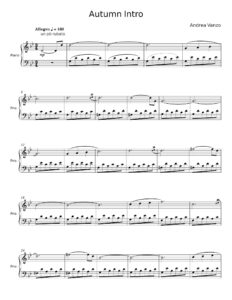 |
|
| Andrea Vanzo Les Madeleines |
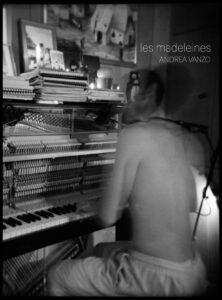 |
|
| Andrea Vanzo Spring |
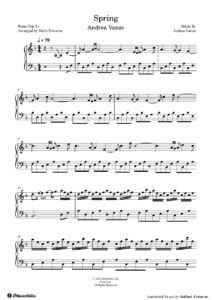 |
|
| Andrea Vanzo Valzer d’Inverno |
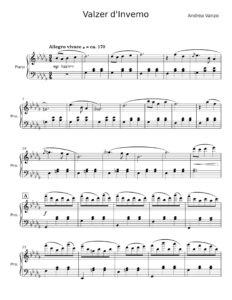 |
|
| Andrés Segovia Classic Album For Guitar Volume 2 |
 |
Andrés Segovia Classic Album For Guitar Volume 2 |
| Andrés Segovia Classic Album For Guitar Volumes 1 to14 |
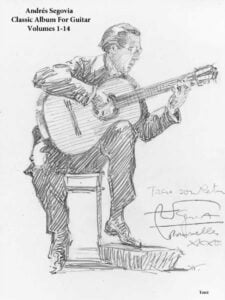 |
Andrés Segovia Classic Album For Guitar Volumes 1 to14Andrés Segovia Classic Album For Guitar Volume 2 |
| Andres Segovia Collection Pieces For Solo Guitar |
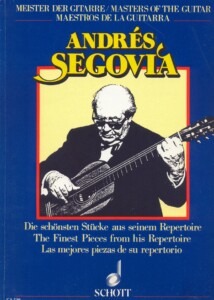 |
Andres Segovia Collection Pieces For Solo Guitar |
| Andres Segovia Obras Para Guitarra Vol 1 Preludios Y Estudios |
 |
Andres Segovia Obras Para Guitarra Vol 1 Preludios Y Estudios |
| Andres Segovia Obras Para Guitarra Vol 2 23 Canciones Populares Del Mundo |
 |
Andres Segovia Obras Para Guitarra Vol 2 23 Canciones Populares Del Mundo |
| Andres Segovia- Transcripciones Obras Para Guitarra Vol 3 |
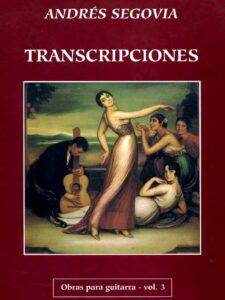 |
Andres Segovia- Transcripciones Obras Para Guitarra Vol 3 |
| Andrew Hill 21 Piano Compositions |
 |
|
| Andrew Lloyd Webber Sunset Boulevard (Revised Broadway Version) Piano & Vocal Score |
 |
|
| Andrew Lloyd Webber The Music Of The Night |
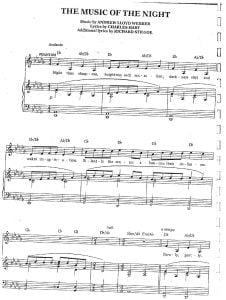 |
|
| Andrew Lloyd Webber Think of me (The Phantom of the Opera) | Andrew Lloyd Webber Think Of Me | |
| Andrew Lloyd Webber – All I Ask of You (The Phantom of the Opera) |
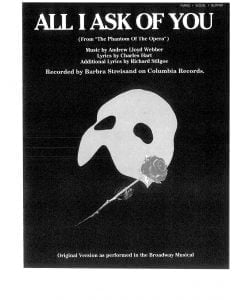 |
|
| Andrew Lloyd Webber – Angel Of Music (Piano, Vocal, Guitar chords) | Andrew Lloyd Webber – Angel Of Music (Piano, Vocal, Guitar chords) | |
| Andrew Lloyd Webber – CATS (Piano & Vocal score) |
 |
Andrew Lloyd Webber – CATS (Piano & Vocal score) |
| Andrew Lloyd Webber – Jesus Christ Superstar (Musical Excerpts Complete Libretto) Lyrics by Tim Rice |
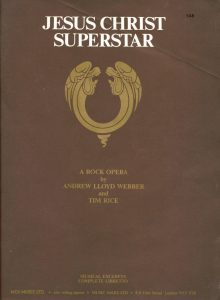 |
 |
| Andrew Lloyd Webber – Joseph And The Amazing Technicolor Dreamcoat The Musical Full Score |
 |
|
| Andrew Lloyd Webber – Joseph And The Amazing Technicolor Dreamcoat The Musical Vocal Selections |
 |
Andrew Lloyd Webber – Joseph And The Amazing Technicolor Dreamcoat The Musical Vocal Selections |
| Andrew Lloyd Webber – Love Never Dies (Piano Book) |
 |
Andrew Lloyd Weber – Love Never Dies (Piano Book) |
| Andrew Lloyd Webber – Love Never Dies Full Vocal Score (Andrew Lloyd Webber) |
 |
Love Never Dies Full Vocal Score |
| Andrew Lloyd Webber – Memory (from CATS) Piano Vocal with lyrics |
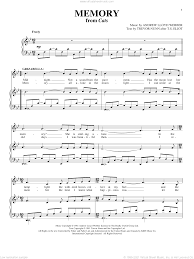 |
|
| Andrew Lloyd Webber – Requiem (the musical) Piano Vocal Score |
 |
|
| Andrew Lloyd Webber – School of Rock |
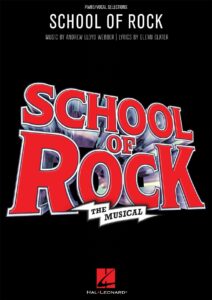 |
Andrew Lloyd Webber – School of Rock |
| Andrew Lloyd Webber – The Phantom Of The Opera | ||
| Andrew Lloyd Webber – Unmasked A Memoir (Book) |
 |
|
| Andrew Lloyd Webber – Unmasked The Platinum Collection |
 |
Andrew Lloyd Webber – Unmasked The Platinum Collection |
| Andrew Lloyd Webber “By Jeeves”, the musical |
 |
|
| Andrew Lloyd Webber Anthology |
 |
Webber, Andrew Lloyd – Antholog |
| Andrew Lloyd Webber Jesus Christ Superstar Tim Rice (Deutsche Texte) | Andrew Lloyd Webber Jesus Christ Superstar Tim Rice (Deutsche Texte) | |
| Andrew Lloyd Webber Masquerade from The Phantom of the Opera for Guitar TABS | Andrew Lloyd Webber Masquerade from The Phantom of the Opera for Guitar TABS | |
| Andrew Lloyd Webber Memory (from Cats) for Guitar TABS | Andrew Lloyd Webber Memory (from Cats) for Guitar TABS | |
| Andrew Lloyd Webber Pro Vocal Womens Edition |
 |
Andrew Lloyd Webber Pro Vocal Womens Edition |
| Andrew Lloyd Webber Sheet Music Collection, The – Andrew Lloyd Webber sheet music |
 |
Andrew Lloyd Webber Sheet Music Collection, The – Andrew Lloyd Webber sheet music |
| Andrew Lloyd Webber The Phantom of the Opera for Guitar TABS | Andrew Lloyd Webber The Phantom of the Opera for Guitar TABS | |
| Andrew Lloyd WebberJesus Christ Superstar (Broadway) |
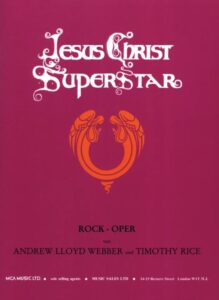 |
Andrew Lloyd Webber Jesus Christ Superstar (Broadway) |
| Andrew Lloyd WebberThe Phantom of the Opera (Piano Vocal & Guitar) Songbook |
 |
 |
| Androgyne (Mario Leblanc) | ||
| Andy Timmons Anthology |
 |
|
| Andy Jaffe – Jazz Harmony |
 |
Andy Jaffe – Jazz Harmony |
| Andy Laverne – Tons Of Runs For The Contemporary Pianist |
 |
andy laverne tons of runs contemporary pianist |
| Andy LaVerne – Vol. 85 Tunes You Thought You Knew | Andy LaVerne sheet music | |
| Andy Mckee Joyland (Songbook) (Andy Mckee) Guitar TAB |
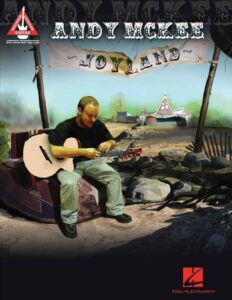 |
Andy Mckee Joyland (Songbook) (Andy Mckee) Guitar TAB |
| Angeles Negros Y Volveré (Alaian Barrière) |
 |
|
| ANGELO BADALAMENTI – (Twin peaks) – Twin Peaks theme easy piano solo | ANGELO BADALAMENTI – (Twin peaks) – Twin Peaks theme | Badalamenti Angelo – Twin Peaks |
| Angelo Badalamenti – Twin Peaks – Love Theme easy piano solo | Badalamenti, Angelo – Twin Peaks – Love Theme | Angelo Badalamenti – Twin Peaks (book) |
| Angelo Badalamenti – Twin Peaks (songbook the music of Twin Peaks) |
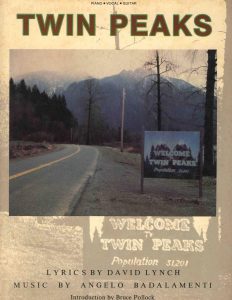 |
Angelo Badalamenti – Twin Peaks (book) |
| Angelo Badalamenti – Twin Peaks Theme (Instrumental) (Musescore File).mscz | ||
| Angelo Badalamenti Twin Peaks – Love Theme (Laura Palmer’s Theme) | Twin Peaks -Love Theme | |
| Angra Rebirth Guitar Songbook |
 |
|
| Angry Birds Theme Song (Piano) |
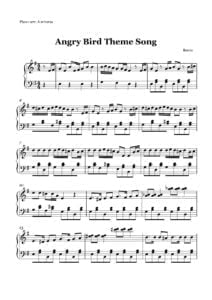 |
|
| Animal Crossing Christmas Eve |
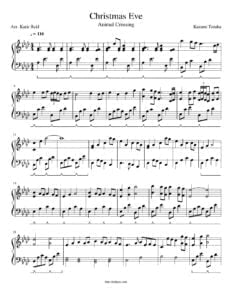 |
|
| Animal Crossing – Christmas Eve (Musescore File).mscz | ||
| Animal Crossing New Horizons – Welcome Horizons Main Theme |
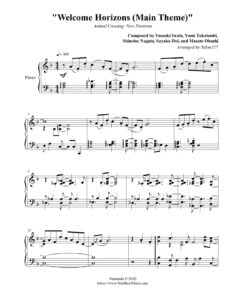 |
|
| Animals – The House Of The Rising Sun | The Animals – House Of The Rising Sun | |
| Animation Collection, Music From The Movies The (Solo Piano) |
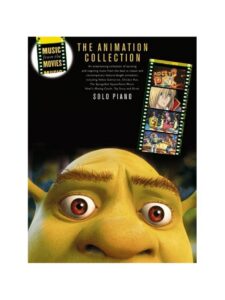 |
Animation Collection, Music From The Movies The (Solo Piano) |
| Anime Music Collection |
 |
Anime Collection |
| Anime Sheet Music Tsubasa Chronicle |
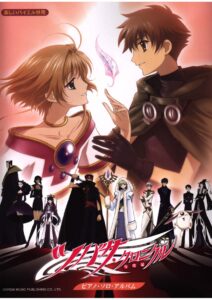 |
Anime Sheet Music Tsubasa Chronicle |
| Anna And The King – How Can I Not Love You – Enriquez Joy | ||
| Anna And The King – How Can I Not Love You – Joy Enriquez | Anna And The King – How Can I Not Love You – Enriquez Joy | |
| Anna Karenina 2012 – Curtain (Dario Marianelli) | ||
| Anna Karenina 2012 – Dance with me (Dario Marianelli) | ||
| Anna Karenina 2012 – I Understood Something (Dario Marianelli) | ||
| Anna Karenina 2012 – Kitty’s Debut (Dario Marianelli) | ||
| Anna Karenina 2012 – Ouverture (Dario Marianelli) | ||
| Anna Karenina 2012 – Ouverture (easier version) | ||
| Anna Karenina 2012 – Too Late (Dario Marianelli) | ||
| Anna Nalick – Breathe | ||
| Anne Murray – Day Dream Believer |
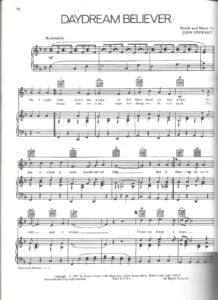 |
|
| Anne Murray Best Of Songbook Piano Vocal Guitar Chords |
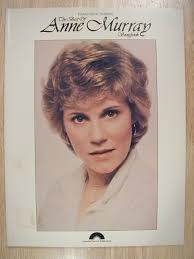 |
Anne Murray Best Of Songbook Piano Vocal Guitar Chords CONTENTS LIST |
| Anne Murray Could I Have This Dance Piano Vocal Musescore File.mscz | ||
| Anne Of Green Gables – Anne’s Theme |
 |
|
| Anne With An E – Marilla’s Theme | Anne With An E – Marilla’s Theme | |
| Annie Lennox The Best Of |
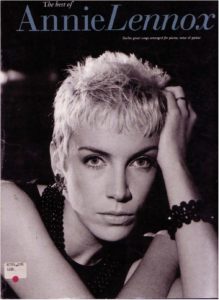 |
Anni Lennox best of songbook |
| Anohni – In My Dreams (piano Solo arr.) euphoria OST |
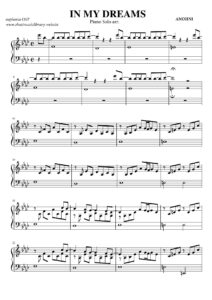 |
|
| Another Day In Paradise Phil Collins (Musescore File).mscz | ||
| Another Day of Sun – La La Land OST | ||
| Anouk – Girl | ||
| Anouk – Its a Shame | ||
| Anouk – My Life | ||
| Anouk – Nobodys Wife | ||
| Anoushiravan Rohani Fravorite Persian Pieces for piano Mid-level piano book |
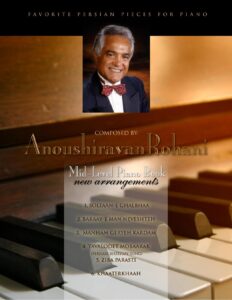 |
Anoushiravan Rohani Fravorite Persian Pieces for piano Mid-level piano book |
| Ansons S. – 6 easy pieces |
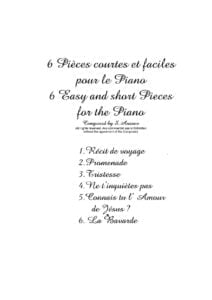 |
|
| Ansons, S. The harmonic garden part I – 24 short Jazz Piano solos |
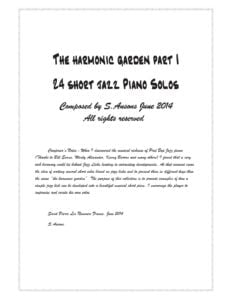 |
|
| Anthologie De La Chanson Française 1920 1950 Enrégistrée Book (Français) |
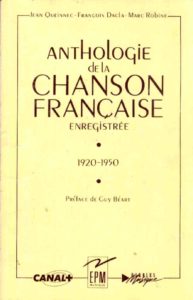 |
Anthologie de la chanson française |
| Anthology for Saxophone (arr. for Eb instr. by Andrea Cappilari) |
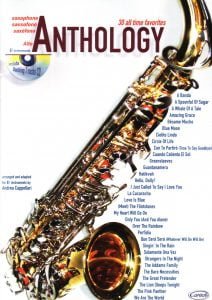 |
|
| Anthology Of American Piano Music Intermediate To Early Advanced Works By 31 Composers |
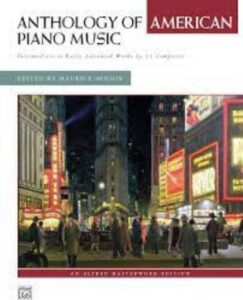 |
Anthology Of American Piano Music Intermediate To Early Advanced Works By 31 Composers |
| Anthology of American Song (26 songs collection by representative American Composers) |
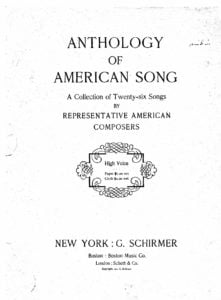 |
|
| Anthology Of Broadway Songs Gold Edition Songbook Piano Vocal Guitar chords |
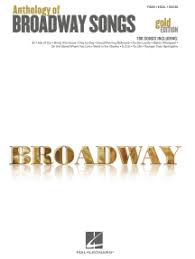 |
Anthology Of Broadway Songs Gold Edition Songbook Piano Vocal Guitar chords |
| Anthology Of Children’s Songs Gold Edition Songbook Piano Vocal Guitar chords |
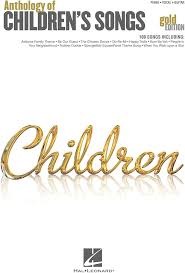 |
Anthology Of Childrens Songs Gold Edition Songbook Piano Vocal Guitar chords |
| Anthology of French Piano Music – Vol. 2 Modern Composers (1906) |
 |
|
| Anthology of French Piano Music by Isidor Philipp Vol. I (1906) |
 |
|
| Anthology of German Piano Music by Moritz Moszkowski (1908) Vol I Early Composers |
 |
Anthology of German Piano Music by Moritz Moszkowski (1908) Vol I Early Comp |
| Anthology of German Piano Music by Moritz Moszkowski (1908) Vol II Modern Composers | Anthology of German Piano Music by Moritz Moszkowski (1908) Vol II Modern Comp | |
| Anthology of Italian Song of 17th and 18th Cent. (1922) |
 |
|
| Anthology Of Modern Classics For The Piano (32 Compositions, Selected, Edited And Fingered) 1904 |
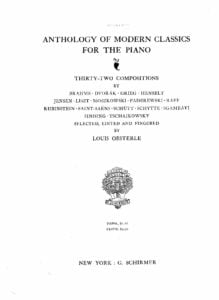 |
Anthology Of Modern Classics For The Piano (32 Compositions, Selected, Edited And Fingered) 1904 |
| Anthology of Modern French song (1912) 39 songs with piano accomp. |
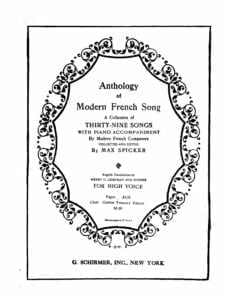 |
|
| Anthology Of Movie Songs Gold Edition Songbook Piano Vocal Guitar chords |
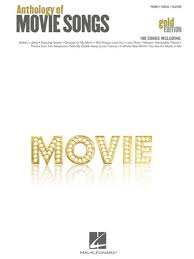 |
Anthology Of Movie Songs Gold Edition Songbook Piano Vocal Guitar chords |
| Anthology Of Post Tonal Music By Miguel A. Roig Francolí (Book) |
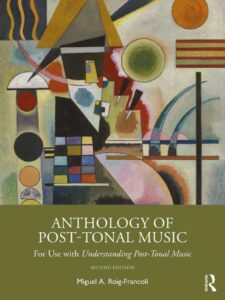 |
|
| Anthony Braxton Composition Opus 23 M |
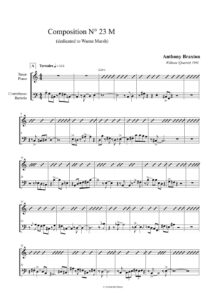 |
|
| Anthony Braxton Composition Opus 23D |
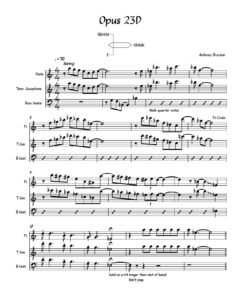 |
|
| Anthropology lead sheet.mscz | ||
| Anthropology Transcription – Sheila Jordan Charlie Parker.mscz | ||
| Anton Bruckner – Fantasy In G Major (Musescore File).mscz | ||
| Anton Rubinstein A Life In Music (Book) Biography by Philip S. Taylor |
 |
|
| Antonio Carlos Jobim Corcovado (Piano and vocal) | Antonio Carlos Jobim Corcovado (Piano and vocal) | |
| Antonio Carlos Jobim The Girl From Ipanema (Piano Solo) Garota De Ipanema | Antonio Carlos Jobim The Girl From Ipanema (Piano Solo) Garota De Ipanema | |
| Antonio Carlos Jobim The Girl From Ipanema (Piano Vocal) Garota De Ipanema | Antonio Carlos Jobim The Girl From Ipanema (Piano Vocal) Garota De Ipanema | |
| Antonio Carlos Jobim Triste (Guitar Solo Arr. With Tabs Sheet Music) | Antonio Carlos Jobim Triste (Guitar Solo Arr. With Tabs Sheet Music) | |
| Antonio Carlos Jobim – Agua De Beber | ||
| Antonio Carlos Jobim – Aguas de Março – Tom Jobim Easy Piano Solo arr | Antonio Carlos Jobim – Aguas de Março – Tom Jobim Easy Piano Solo arr | |
| Antonio Carlos Jobim – Aguas de Março – Tom Jobim Easy Piano Solo arr.mscx | ||
| Antonio Carlos Jobim – cancioneiro (piano,lyrics &guitar chords songbook) |
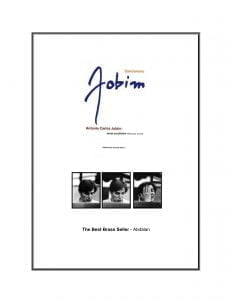 |
Antonio Carlos Jobim – cancioneiro (piano lyrics songbook) |
| Antonio Carlos Jobim – Corcovado (Musescore File).mscz | ||
| Antonio Carlos JOBIM – For bossa nova all styles (Guitar Tabs) |
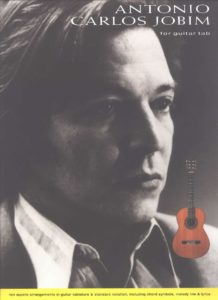 |
Antonio Carlos JOBIM – For bossa nova all styles |
| Antonio Carlos Jobim – Garota De Ipanema | ||
| Antonio Carlos Jobim – Jobim Cancioneiro Obras Completas |
 |
Antonio Carlos Jobim – Jobim Cancioneiro Obras Completas contents — Antonio Carlos Jobim – Jobim Cancioneiro Obras Completas |
| Antonio Carlos Jobim – Jobim Cancioneiro Obras Selectas (partituras) | Antonio Carlos Jobim – Jobim Cancioneiro Obras Selectas (partituras) |
